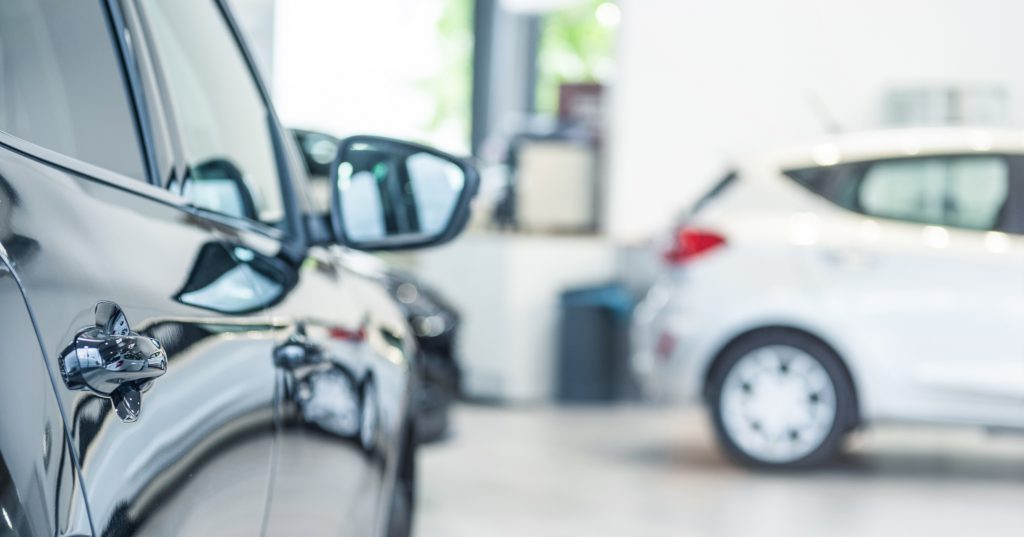Germany and its dealerships to remain closed until March
11 February 2021

Germany will remain under lockdown until 7 March in an attempt to curb the spread of COVID-19, said Chancellor Angela Merkel on February 10. Accordingly, the Central Association of the German Motor Vehicle Industry (ZDK) has called for an extension to automotive aid measures to the second half of this year.
Under the latest announcement, car showrooms, along with much of the rest of the economy remain under tight restrictions until an infection rate of no more than 35 new cases per 100,000 people over seven days is reached. On Wednesday (10 February), this number sat at 68, having fallen from nearly 200 in late December.
Acknowledging that the decision followed the fear of a spread of more aggressive strains, ZDK president Jürgen Karpinski, said, ‘we had hoped for opening guidelines for the important spring business, taking into account the comparatively very low risk of infection in car dealerships.’
But the ZDK said that with lockdown conditions continuing, it will be increasingly difficult to generate sufficient incoming orders. ‘We are not only lacking sales revenues now, but in the coming months. ‘This is due to the delay of several months between receipt of the order and delivery of the vehicle,’ explained Karpinski. ‘What is not ordered today will be missing as revenue in a few months. That cannot be compensated for either.’
Therefore, the association called for an extension to aid measures for companies, which are currently in place to 30 June. The measures include; Bridging Aid III, the KfW Special Program 2020 and the KfW Rapid Loan 2020.
‘Running out of breath’
The ZDK cautioned that small and medium-sized automotive companies should not be ‘left out in the rain,’ while even financially strong dealers are ‘slowly running out of breath.’ Karpinski said that incoming orders are collapsing, while dealers’ forecourts are full of vehicles that were ordered before lockdown began. He went on to say that, ‘of course, these vehicles have to be financed.’ That means an enormous capital commitment for the trade.’
Prior to the announcement, ZDK vice president Thomas Peckruhn had pointed to January’s 31% drop in new-car registrations, and 29.4% fall in used-car sales in Germany as a warning sign, and called for a clear statement for reopening trade. ′Our operations have large showrooms and there are comparatively few customers present at the same time,’ he emphasised.
In a previous statement, the vice president explained there were also the financial burdens involved in making a transformation towards electromobility. ‘We run a consulting and capital-intensive business with high-value goods,’ emphasised Peckruhn. ‘At the moment, it is hardly possible to calculate the volume of vehicle orders for the spring business. If the dealers are left with the cars they have ordered, we are talking nationwide about the threat of financial burdens running into billions,’ he said. ‘This endangers many livelihoods. And that’s why additional compensation is also required for the car trade.’
Lockdown solutions post-lockdown
The association had argued that with comprehensive hygiene concepts, dealerships were optimally prepared for direct customer contact on-site. ‘We need the spring business, otherwise there is a risk of bankruptcies in the automotive trade,’ Peckruhn said.
‘Dealers, importers and OEMs need to focus all their attention on developing customer engagement and sales processes that are lock-down-compliant,’ said Autovista Group’s chief economist Christof Engelskirchen. ‘It will not be a waste of time as post-lock down, those looking for a new or used vehicle will continue to appreciate the option of online buying and contactless test drives and deliveries.’
A recent example of dealerships working around COVID-19 restrictions is a UK-based trial revealed by Abarth. A virtual reality (VR) test drive pack is delivered to potential customers, allowing them to sample vehicles when considering an online purchase. If successful, the scheme will be rolled out across the entire country. While sending out VR headsets to all customers might be a stretch for some smaller automotive businesses, COVID-19 has none-the-less emphasised the need to take full advantage of showroom alternatives such as online platforms.